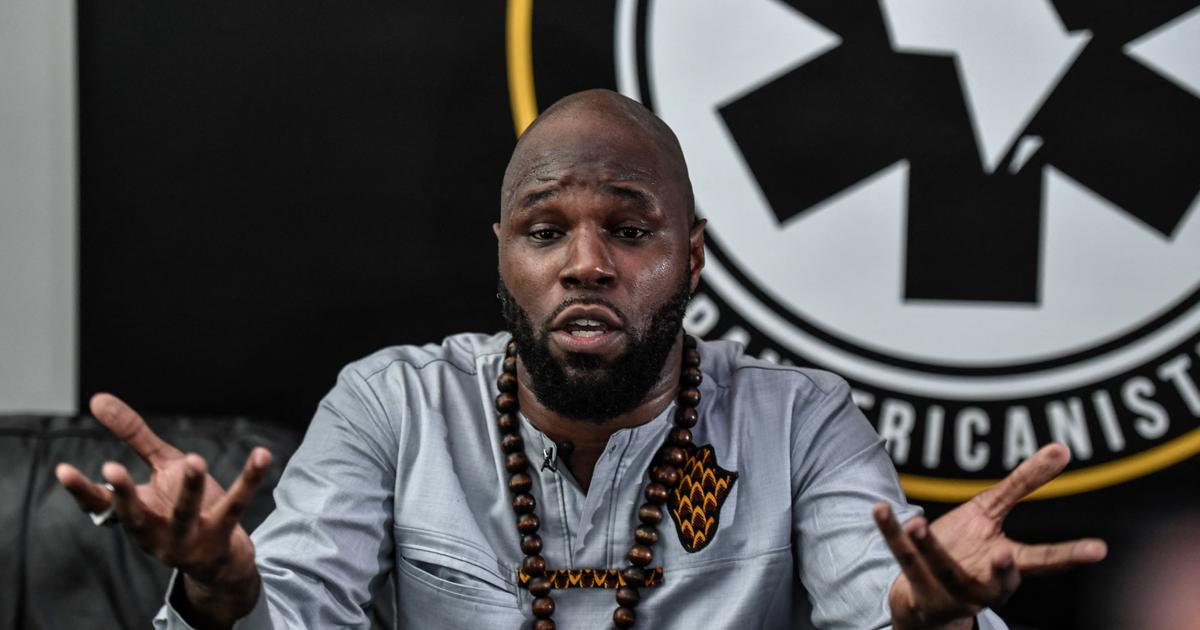Enlarge image
The i-Hub Center in Nairobi: The Kenyan capital is also known as Silicon Savannah
Photo: Waldo Swiegers / Bloomberg / Getty Images
»Kenyans On Twitter«, or KOT for short, are a force that should not be underestimated. Once the Kenyan Twitter community has committed itself to a goal, there is no mercy. Robin Reecht, the French founder of the start-up Kune, also felt this. Kune wants to establish an online delivery service for cheap meals in the capital, Nairobi. Quite harmless - at first glance.
But the problem began when founder Reecht gave an interview to the TechCrunch platform. Kune had just raised more than $ 1 million from investors to launch the company on a large scale. In the interview, Reecht is quoted as follows: “When I was in Kenya for three days, I asked around: Where can I get good food at low prices? Everyone told me it was impossible. ”Either you can get food on the street, which is very cheap but not very good quality. Or you can order from delivery services at a high price.
It wasn't long before the KOT took up these quotes. The young, self-confident Kenyan middle class is very allergic to whites who are allegedly trying to explain the world to them. Or criticize the local food. The two together make a toxic mixture. “What the hell is this nonsense?” Asked one user. Another wrote: "I'm still baffled at the audacity that someone would get $ 1 million to 'invent' food deliveries in Nairobi." Because in the Kenyan capital, motorcycle taxis deliver pretty much anything pretty much anywhere.
The discussion quickly became more fundamental, revolving around white privilege, i.e. the privilege of white founders in the scene. "That shows that the funding has a clique ... this clique is white, this clique is male ..." one user posted. The business news website Quartz reported on the case, the start-up Kune had to apologize: »Our founder made a promise. We love street food (...) and we love the Kenyan food culture. «The damage was done long ago.
The anger that erupted at Kune seems to have deeper causes. According to the consulting firm Viktoria Ventures, just six percent of the founders in Kenya who were able to raise more than one million US dollars for their start-ups come from the East African country. Anyone who raises a lot of money here as a founder comes in most cases from the USA or Europe: white capital for mostly white founders - this also applies on the African continent, in the so-called Silicon Savannah.
Many Kenyan founders therefore use a tried and tested tactic, but hardly anyone wants to talk about it openly: In order to get money from investors, they look for "white faces" that are presented on the company website and at pitches. Stefan Kremer, a German IT freelancer who is active in Kenya, has also recognized this. He is aware of his own privileges - and wanted to deal with them satirically. Kremer founded the Hire-a-Mzungu, Hire-a-Whites site. As a supposed service, he offers several packages, from simple naming to the white all-round carefree package.
»In fact, there were some who got in touch who said very seriously: I have a business idea here, but can't find any investors. Can i book you We need your white face on our side. That shows that the problem is obviously very real, ”says Kremer. He now wants to sit down with some interested parties and support them in their search for investors.
Many African start-up entrepreneurs prefer not to be quoted, they are too concerned about possible consequences. Some speak of a "digital colonization" that needs to be stopped. Many confirm cases in which black founders brought whites on board in order to more easily get money from Europe or the USA. "Blacks are not expected to create great things," says one. "But we now have the opportunity to change that."
Sesinam Dagadu is one of those who do not mince words.
He lives in London and Ghana's capital, Accra, and has founded a start-up for the transmission of addresses.
"When I call from Ghana, I experience completely different reactions than when I call from London," he says.
Often there is no specific racism behind it, rather unconscious prejudices.
"There is a hierarchy: the white investor, then the white entrepreneur in Africa, only then comes the native black entrepreneur," says Dagadu.
»That in no way reflects the population«
Competitors would often receive more funding after a single PowerPoint presentation than his company would collectively in three years. »But the big problem is: founders who don't understand the local situation get the money. If they then fail, they say: You can't build a business in Africa, ”says Dagadu. He has a specific proposal for a solution: The big investors should send someone to Africa who then supports local founders on site. Both sides could benefit from this.
Maxime Bayen also wants to change the start-up landscape in Africa. He works for a program that finances and supports innovative start-ups in Kenya, Nigeria and South Africa, among others.
“We have to be careful not to fight the wrong fight,” he says.
Namely, to direct the anger against the successful founders - and not against the investors.
Because there are a lot of founders from the Global North with good ideas that have a big impact.
“We can't blame them for that.
A change in mentality must take place, especially among investors.
Unfortunately, there is evidence that they tend to support people from their network with the same socio-economic backgrounds. ”In practice, this means: mainly white founders.
Bayen looked at the university degrees of the founders of Kenyan start-ups.
The result: only 18 percent have a Kenyan degree, the rest attended universities mainly in the USA and the EU.
"It doesn't reflect the population in any way," he says.
Often there is no bad intent behind this, rather a lack of access to the founders and creative people on site.
“Seven out of ten investors who invest more than $ 100,000 in Africa are based outside the continent.
We have to bring them into contact with the talents in Africa, ”demands Bayen.
»At the moment, the signal to local young people is more like this: Successful start-up entrepreneurs don't look like you.
We have to change that."
This contribution is part of the Global Society project
Expand areaWhat is the Global Society project?
Reporters from
Asia, Africa, Latin America and Europe
report under the title “Global Society”
- on injustices in a globalized world, socio-political challenges and sustainable development.
The reports, analyzes, photo series, videos and podcasts appear in the international section of SPIEGEL.
The project is long-term and will be supported for three years by the Bill & Melinda Gates Foundation (BMGF).
A detailed FAQ with questions and answers about the project can be found here.
AreaWhat does the funding look like in concrete terms?
The Bill & Melinda Gates Foundation (BMGF) is supporting the project for three years with a total of around 2.3 million euros.
Are the journalistic content independent of the foundation?
Yes.
The editorial content is created without the influence of the Gates Foundation.
Do other media have similar projects?
Yes.
Big European media like "The Guardian" and "El País" have set up similar sections on their news sites with "Global Development" and "Planeta Futuro" with the support of the Gates Foundation.
Have there already been similar projects at SPIEGEL?
In the past few years, SPIEGEL has already implemented two projects with the European Journalism Center (EJC) and the support of the Bill & Melinda Gates Foundation: the “Expedition ÜberMorgen” on global sustainability goals and the journalistic refugee project “The New Arrivals” within the framework several award-winning multimedia reports on the topics of migration and flight have been produced.
Where can I find all publications on global society?
The pieces can be found at SPIEGEL on the topic Global Society.













